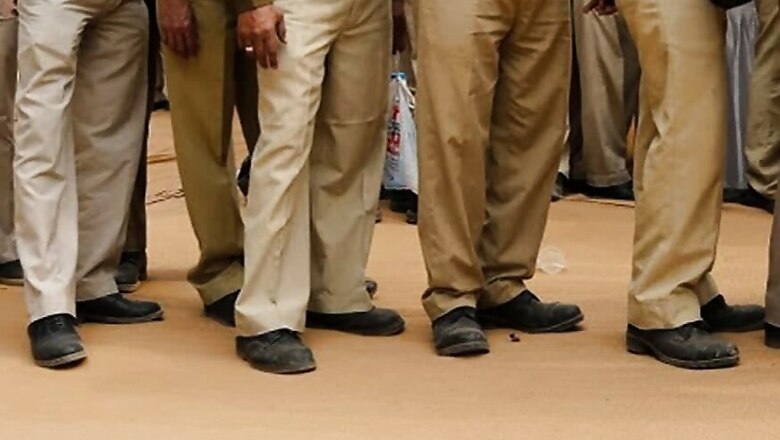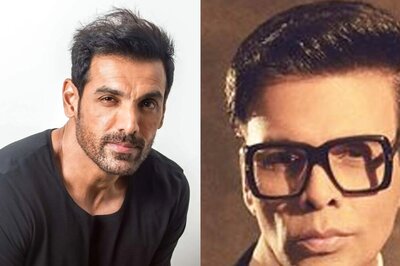
views
New Delhi: Inspector Kaushal Gangoli committed suicide by shooting himself in Delhi’s CR Park police station on May 10 last year. His family accused a senior police officer of humiliation and demanded a CBI enquiry but the case was transferred to the crime branch.
A year later, police said they found nothing substantial in the enquiry. They will be submitting the findings of the probe to the Delhi commissioner of police.
Last month, Mumbai top cop Himanshu Roy, who was known for his investigation in the 2013 IPL spot fixing scam and the J Dey murder case, shot himself dead with his service revolver.
A fitness enthusiast, Roy was suffering from cancer and his suicide note allegedly blamed depression due to the disease as the reason behind the extreme step.
Just a fortnight had lapsed that the news of another police official committing suicide sent shockwaves across the country. Rajesh Sahni, additional superintendent of police ATS, UP Police, who was known for his role in cracking the Korasan terror module in Kanpur, shot himself in his office with his service pistol.
The list of such incidents, however, does not end here.
According to Delhi Police’s data, four police officials had committed suicide by June 12 this year. Last year, a total of nine police officials committed suicide.
While the UP Police don’t have a separate data, this year at least three police officials took the extreme step.
According to a report, Tamil Nadu records the highest suicide cases among police officials, followed by Maharashtra and Kerala. The report, which collected data from 2010 to 2014, revealed that 166 police officials committed suicide in Tamil Nadu, 161 in Maharashtra and 61 in Kerala.
But what drives tough cops to take such an extreme step?
Talking to News18, Rahul Srivastava, additional SP, UP Police, said: “Our job is such that we are supposed to act tough and deal with negativities like crime, listen to complainants, their agony and misery. We are exposed to high degree of human misery.”
There is no denying that police officers of all ranks are exposed to high degree of human apathy as they come face-to-face with brutal crimes on a daily basis.
A medical test conducted for the police force in Uttar Pradesh recently revealed that most of the officers suffered from high blood pressure, hypertension and diabetes among other diseases.
This analysis is true for other states too. A research conducted by RML Hospital, Delhi, on behalf of Bureau of Police Research and Development (BPRD) suggested that police officials face multiple stress-induced problems such as increased blood pressure, diabetes, higher triglyceride and obesity among others.
The reasons behind these diseases are multi-pronged.
According to Srivastava, police officials get very few leaves, there is lack of empathy, the force has a high degree of hierarchy and there is absence of communication.
Echoing the sentiment, clinical psychologist Rajat Mitra said, “Some police officers have told me privately that in their work they reach a point where they feel like ending their life.”
Mitra, who has counselled several police officers, is of the opinion that cops witness the underbelly of society and the dark side of human nature every day, which makes it difficult for them to retain their sanity.
“If it is coupled with personal issues, which they are unable to tell anyone, it becomes a major problem and they (police officers) feel a sense of hopelessness,” said Mitra, who has worked with the police force for 20 years.
Recalling an incident during his work with the inmates of Tihar Jail, Mitra said he came across a DG who would call him regularly to talk about the prison.
While the psychologist thought the call was to know about the inmates and their improvement, it turned out to be a counselling session for the then DG himself. When Mitra asked him the reason for the same, he said: “Every day, I have to see faces that no one wants to see. After a certain period of time, it affects the mind. That’s why I take a session with you before leaving for home so that I speak normally to my family.”
The psychologist feels it is time cops are given sessions on channelling their emotions.
The Delhi Police recently launched a programme to analyse the mental health of its staff. The exercise began with the staff of the Police Control Room (PCR) as they are the first respondents to a crime. Those found with severe stress symptoms will be given a detailed psychological screening. The Uttar Pradesh Police are planning to sign an MoU with universities that have a psychology department. They will also rope in psychologists to help and counsel cops.
Mitra suggests that there is a need to talk about post-traumatic stress disorder (PTSD) and how to handle it.
PTSD is defined as a condition of persistent mental and emotional stress occurring as a result of injury or severe psychological shock, typically involving disturbance of sleep and constant vivid recall of the experience, with dulled responses to others and to the outside world.
Former Delhi Police commissioner TR Kakkar says there is a need to introduce stress management.
According to Kakkar, every profession is stressful but in the police force, the pressure is always high due to strict deadlines. “Every investigating officer in this city (Delhi) is handling at least three times the number of cases he should be handling. In our times, we might be handling 80 cases but now a sub-inspector handles 200 cases,” said Kakkar, adding that a force like the Delhi Police must have at least eight to 10 psychologists.
So, what other steps can be taken to lend a helping hand to the force?
“The senior officers should promote dialogue, be empathetic to their subordinates and in a scenario of restricted leaves, give one weekly off to all the police officials,” suggests Srivastava.
In February, OP Singh, the present DGP of UP Police, called a head constable named Bhupen Singh Tomar posted in Saharanpur. Tomar was attending a call regarding a stabbing when he was informed about his daughter’s death.
Sticking to his duty, the head constable first rushed the victim to hospital and then went home. Tomar was hailed as the hero of the department for his professionalism and sacrifice.
Many state police chiefs and district heads have now started appreciating and recognising the work of the lower constabulary. Officials often complain that they are pulled up if found guilty, but their good work is never recognised, which demotivates the force.
Data shows it’s mostly lower-rank officials who end their life due to professional and personal issues.
What adds to the stress is the fact that police officials are often expected to pitch in for jobs beyond their mandate.
The work of a police officer is to register an FIR, arrest the accused and maintain law and order but often, they go beyond the call of duty — for instance, going deep into a drain to save a life.
Recently, there was much brouhaha over police officials asking the family of a deceased to stitch his body up after probe in an accident case. While the officials were punished for the same, no rulebook actually mentions that it’s the job of the force to stitch up a body.
Keeping in mind the on-field issues, the UP Police are trying to seek professional help and are equipping their teams with body wrappers and stretchers so that cops don’t hesitate in lifting bodies.
The need of the hour is to clear overdue promotions, recognise the good work being done by the force and provide them a platform to start a dialogue and vent out their frustration so that they can be motivated.


















Comments
0 comment